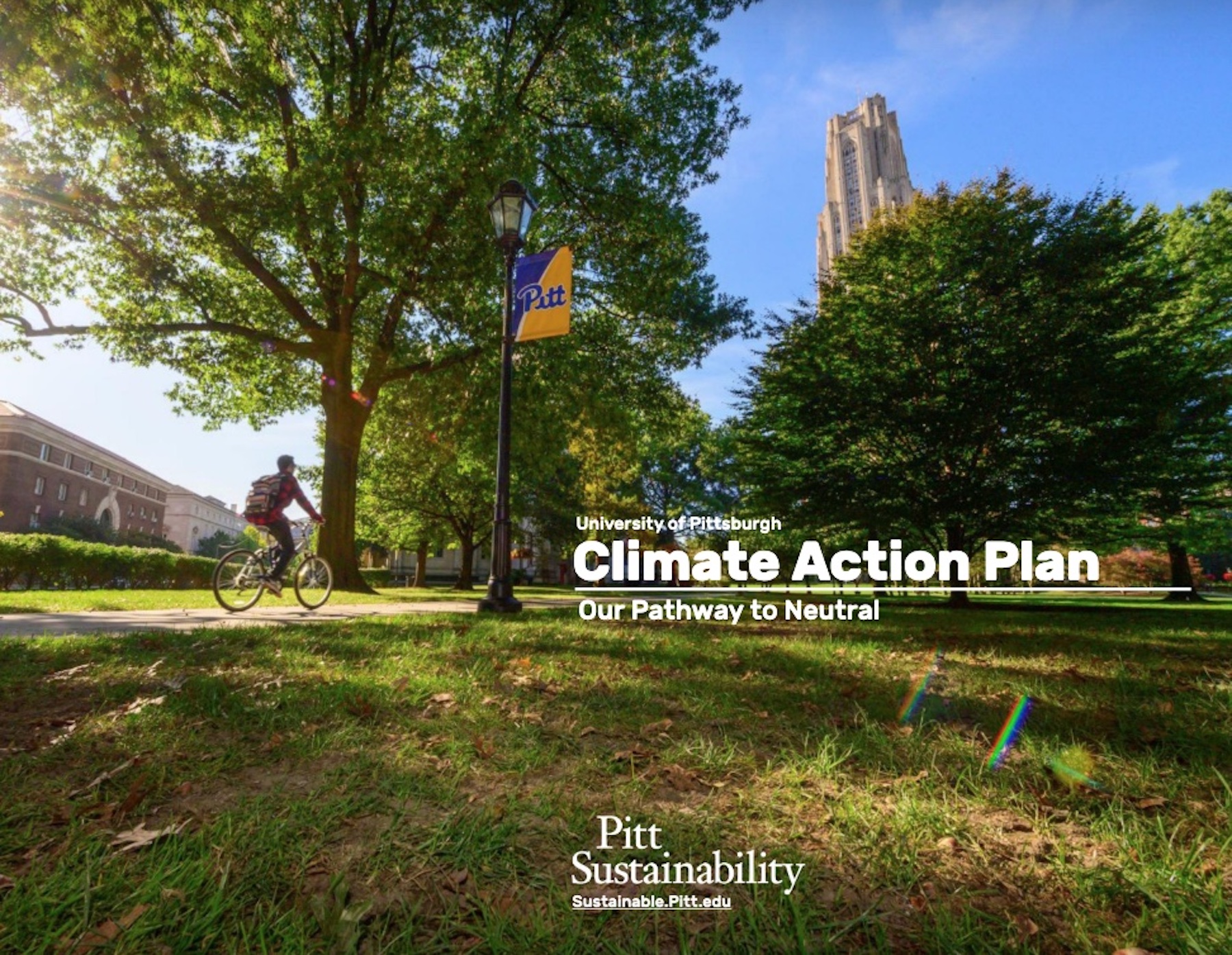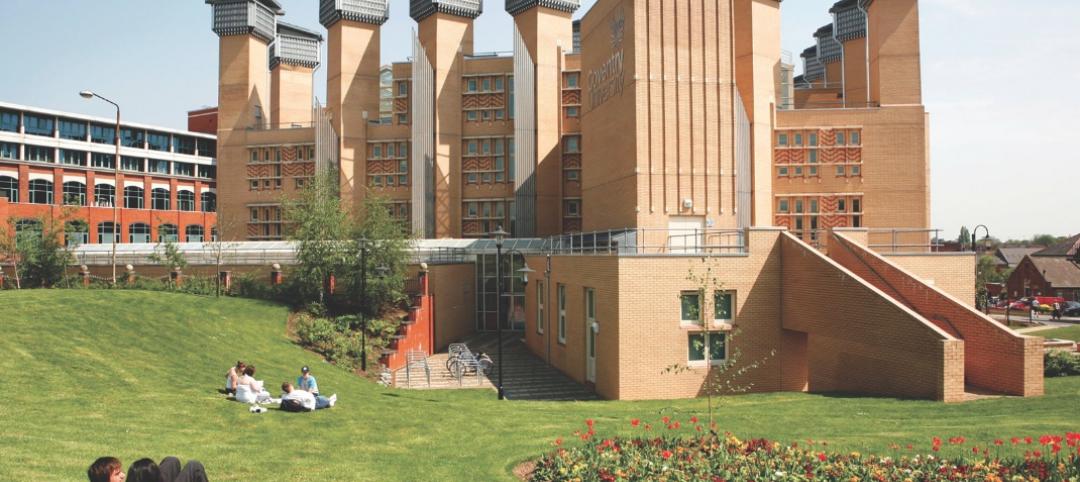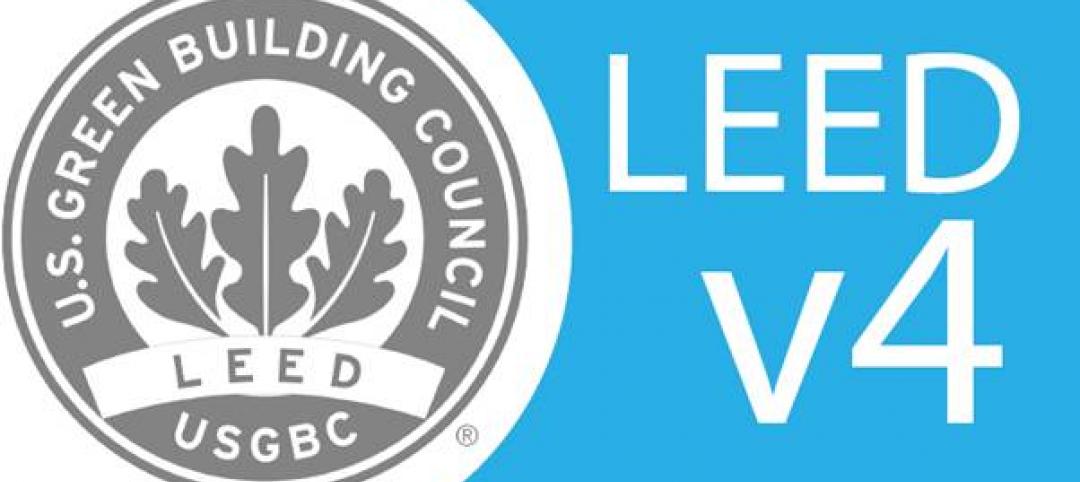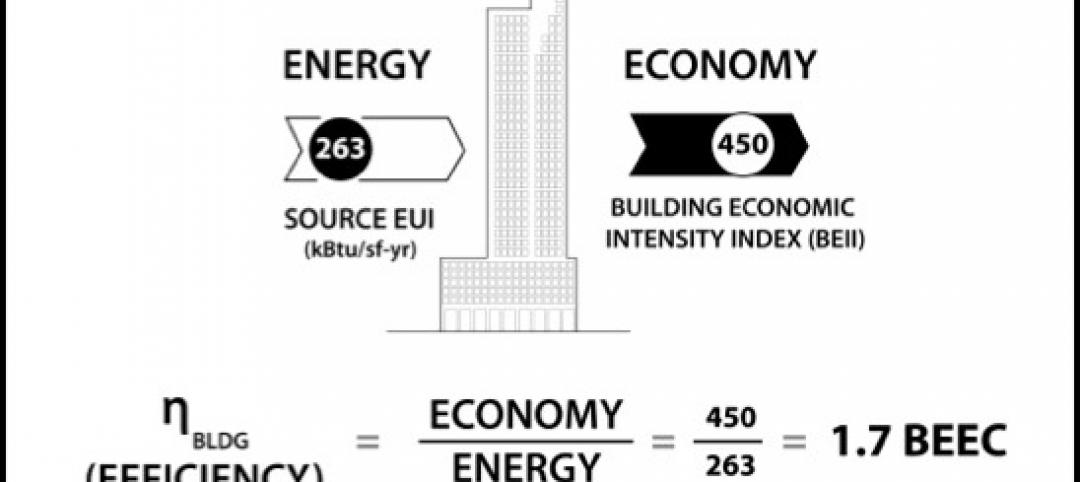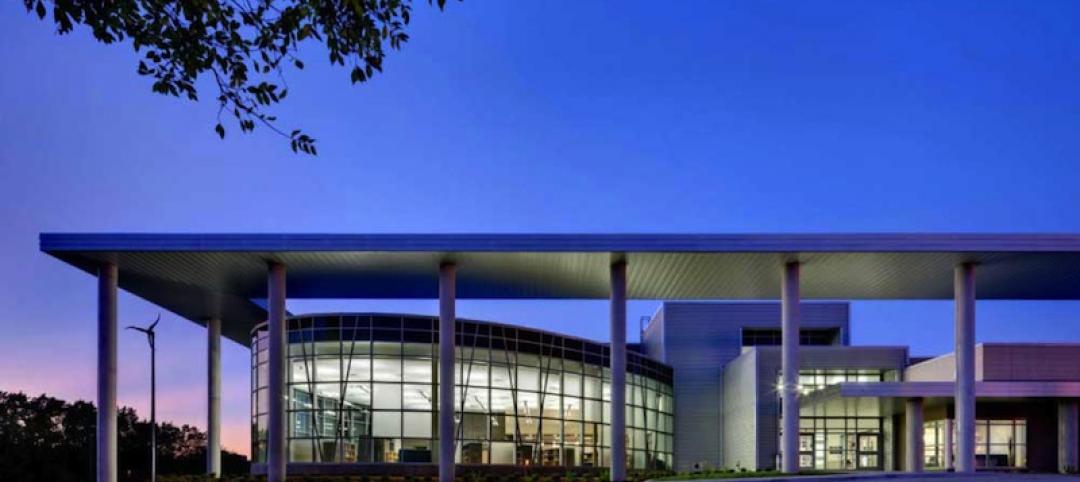The University of Pittsburgh has released the Pitt Climate Action Plan, detailing how the University will achieve its goal to go carbon neutral by 2037 through investments in clean energy, transportation, efficiency and other areas. By 2037, efforts detailed in the plan will result in a net reduction in annual emissions equivalent to taking more than 45,000 cars off the road.
AMBITIOUS GOAL RESTS ON 3 PILLARS
The report details three pillars for achieving 2037 goals: energy demand reduction; clean supply via renewable and clean energy investment; and low carbon connections via active, shared and low carbon mobility.
Planned investments in energy efficiency will decrease the use of utilities on campus, while investments in electricity generation, including agreements for local hydroelectric and solar power that are already underway, will help ensure that the energy the University does consume is clean.
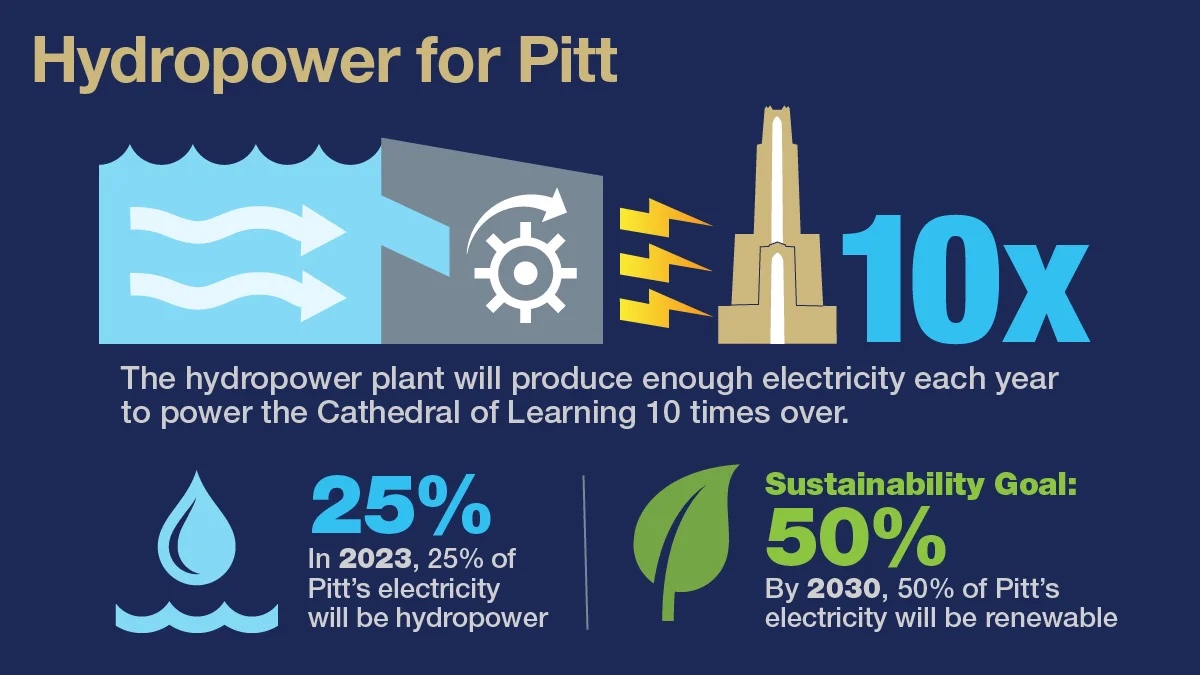
Energy demand reductions from space use optimization, existing building efficiency, and new building performance will enable the university to avoid 27,100 metric tons of carbon dioxide equivalent (MT CO2e). Carbon emissions will be reduced by establishing and supporting low carbon connections for commuting and air travel through strategies such as shifting commuting modes to more active, shared, and low carbon choices; an increase in flex work arrangements, air travel reductions, and air travel offsets.
'NEED FOR URGENCY' IN 2037 GOAL
“The Pitt Climate Action Plan lays out our institutional climate action strategy for the University community and details how they can get involved,” said Pitt Director of Sustainability Aurora Sharrard, who also chairs the Carbon Commitment Committee of the Chancellor’s Advisory Council on Sustainability responsible for compiling the plan. “Many higher education institutions have set a 2050 goal. The 2037 goal recognizes the need for urgency in addressing the climate emergency, while also allowing for the longer-term planning necessary to pursue sustainable solutions”
Pitt has already made substantial progress in reducing its carbon footprint: The school’s most recent greenhouse gas inventory showed a 32% decrease in emissions between 2008 and 2020, thanks in part to a shift to cleaner steam plants and ongoing energy efficiency projects in campus buildings.
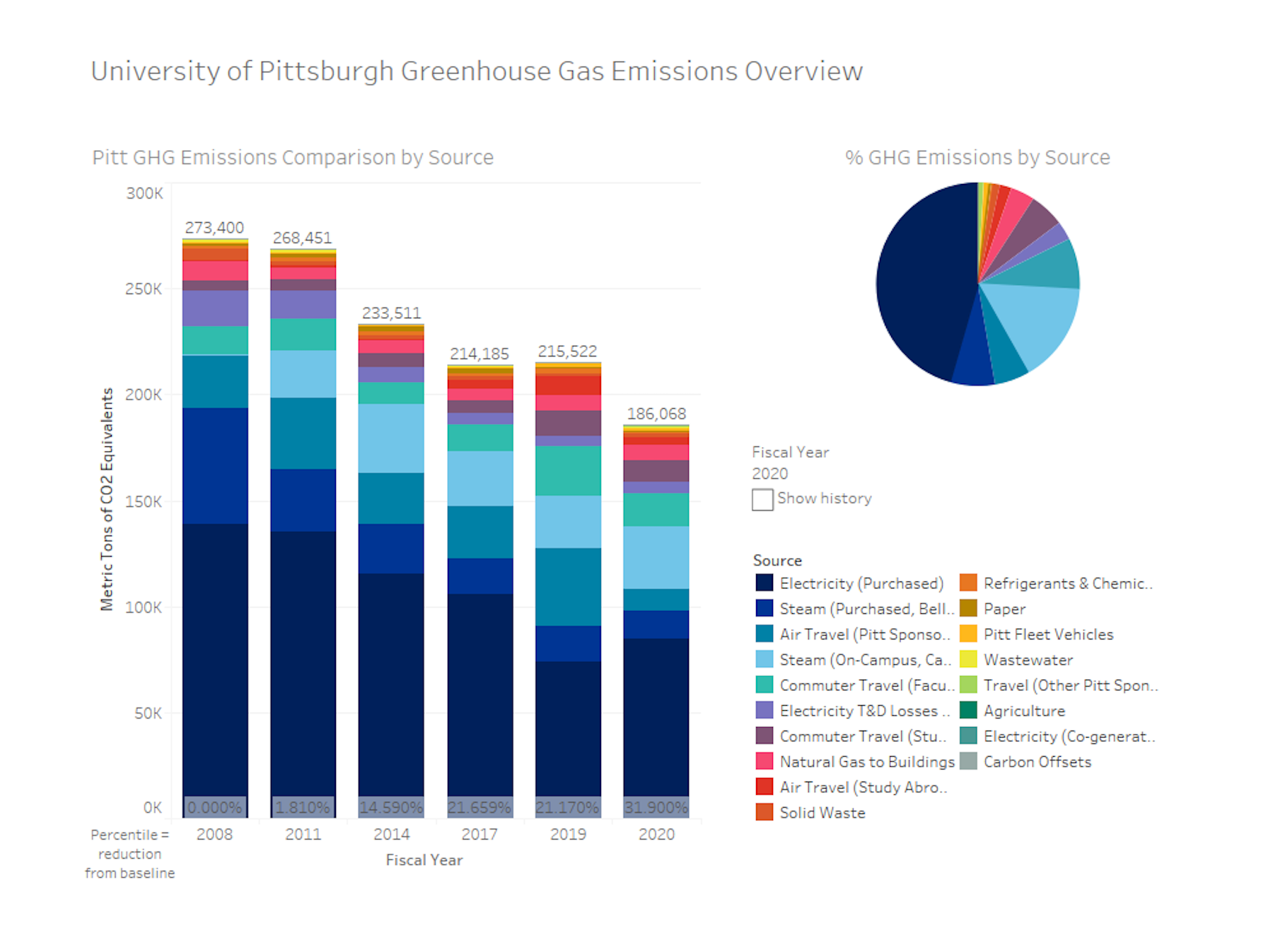
The committee will update the Pitt Climate Action Plan every five years, detailing and making public the ongoing work toward carbon neutrality at Pitt.
“We have a responsibility to our larger communities, both in Pittsburgh and our regional campuses, to ensure that we’re communicating what we’re doing as a thought and practice leader to help other institutions find their own way,” she said. “The global call is for carbon neutrality by 2050. It’s going to take a lot more than just us to get there.”
Related Stories
| Jan 16, 2014
The incandescent light bulb is not dead
Despite misleading media reports, January 1 did not mark a ban on the manufacture or import of 60-watt and 40-watt incandescent bulbs.
| Jan 11, 2014
Getting to net-zero energy with brick masonry construction [AIA course]
When targeting net-zero energy performance, AEC professionals are advised to tackle energy demand first. This AIA course covers brick masonry's role in reducing energy consumption in buildings.
| Jan 6, 2014
Green Building Initiative names Jerry Yudelson as new President
The Green Building Initiative announced today that it has named Jerry Yudelson as its president to accelerate growth of the non-profit and further leverage its green building assessment tools, including the highly recognized Green Globes rating system.
| Jan 6, 2014
An interview with Jerry Yudelson, President, The Green Building Initiative
Green building consultant Jerry Yudelson has been named President of the Green Building Initiative and the Green Globes rating program. BD+C's Robert Cassidy talks with Yudelson about his appointment and the future of Green Globes.
| Jan 2, 2014
Measuring whole building energy use among big changes in LEED v4
A new prerequisite in LEED v4 calls for each project to measure whole building energy use, and then share that data with USGBC.
| Dec 31, 2013
Top 10 blog posts from 2013
BD+C editors and our contributors posted hundreds of blogs in 2013. Here's a recap of the most popular topics. They include valuable lessons from one of the first BIM-related lawsuits and sage advice from AEC legend Arthur Gensler.
| Dec 20, 2013
Can energy hogs still be considered efficient buildings? Yes, say engineers at Buro Happold
A new tool from the engineering firm Buro Happold takes into account both energy and economic performance of buildings for a true measure of efficiency.
| Dec 17, 2013
Nation's largest net-zero K-12 school among winners of 2013 Best of Green Schools award
The Lady Bird Johnson Middle School in Irving, Texas, was named a winner of USGBC's annual award, along with nine other schools, individuals and communities working toward the common goal of healthy, high-performing learning places.
| Dec 10, 2013
16 great solutions for architects, engineers, and contractors
From a crowd-funded smart shovel to a why-didn’t-someone-do-this-sooner scheme for managing traffic in public restrooms, these ideas are noteworthy for creative problem-solving. Here are some of the most intriguing innovations the BD+C community has brought to our attention this year.
| Nov 27, 2013
LEED for Healthcare offers new paths to green
LEED for Healthcare debuted in spring 2011, and certifications are now beginning to roll in. They include the new Puyallup (Wash.) Medical Center and the W.H. and Elaine McCarty South Tower at Dell Children’s Medical Center of Central Texas in Austin.


